115 low relevance results shown for 'System'. Prev |1|2|3|4|5 | Next | View 100 per page
Showing low relevance matches only. Return to normal search results
Earth Moon Sun - The Earth is part of a system of planets orbiting around a star (the sun) ACSSU150 Year 8 Biological Sciences
Organ Systems - Multi-cellular organisms contain systems of organs that carry out specialised functions that enable them to survive and reproduce ACSSU155 Year 8 Physical Sciences
Energy Forms - Energy appears in different forms, including movement (kinetic energy), heat and potential energy, and energy transformations and transfers cause change within systems ACSSU175 Year 9 Biological Sciences
Organ Systems - Multi-cellular organisms rely on coordinated and interdependent internal systems to respond to changes to their environment ACSSU176 Year 9 Biological Sciences
Ecology - Ecosystems consist of communities of interdependent organisms and abiotic components of the environment; matter and energy flow through these systems ACSSU179 Year 9 Chemical Sciences
Chemical Reactions - Chemical reactions, including combustion and the reactions of acids, are important in both non-living and living systems and involve energy transfer ACSSU188 Year 10 Earth and Space Sciences
Universe - The universe contains features including galaxies, stars and solar systems and the Big Bang theory can be used to explain the origin the universe ACSSU189 Year 10 Earth and Space Sciences
Global Systems - Global systems, including the carbon cycle, rely on interactions involving the biosphere, lithosphere, hydrosphere and atmosphere ACSSU190 Year 10 Physical Sciences
Energy Conservation - Energy conservation in a system can be explained by describing energy transfers and transformations ACSBL019 Year 11 Biodiversity and the interconnectedness of life
Describing biodiversity - Ecosystems are diverse, composed of varied habitats and can be described in terms of their component species, species interactions and the abiotic factors that make up the environment ACSBL029 Year 11 Biodiversity and the interconnectedness of life
Ecosystem dynamics - Models of ecosystem interactions (for example, food webs, successional models) can be used to predict the impact of change and are based on interpretation of and extrapolation from sample data (for example, data derived from ecosystem surveying techniques ACSCH061 Year 11 Molecular interactions and reactions
Aqueous solutions and acidity - Water is a key substance in a range of chemical systems because of its unique properties, including its boiling point, density in solid and liquid phases, surface tension, and ability to act as a solvent ACSCH091 Year 12 Equilibrium acids and redox reactions
Chemical equilibrium systems - Over time, physical changes and reversible chemical reactions reach a state of dynamic equilibrium in a closed system, with the relative concentrations of products and reactants defining the position of equilibrium ACSCH096 Year 12 Equilibrium acids and redox reactions
Chemical equilibrium systems - Equilibrium position can be predicted qualitatively using equilibrium constants ACSCH097 Year 12 Equilibrium acids and redox reactions
Chemical equilibrium systems - Acids are substances that can act as proton (hydrogen ion) donors and can be classified as monoprotic or polyprotic depending on the number of protons donated by each molecule of the acid ACSCH098 Year 12 Equilibrium acids and redox reactions
Chemical equilibrium systems - The strength of acids is explained by the degree of ionisation at equilibrium in aqueous solution, which can be represented with chemical equations and equilibrium constants (Ka) ACSCH099 Year 12 Equilibrium acids and redox reactions
Chemical equilibrium systems - The relationship between acids and bases in equilibrium systems can be explained using the Brønsted Lowry model and represented using chemical equations that illustrate the transfer of hydrogen ions ACSCH100 Year 12 Equilibrium acids and redox reactions
Chemical equilibrium systems - The pH scale is a logarithmic scale and the pH of a solution can be calculated from the concentration of hydrogen ions; Kw can be used to calculate the concentration of hydrogen ions from the concentration of hydroxide ions in a solution ACSCH101 Year 12 Equilibrium acids and redox reactions
Chemical equilibrium systems - Acidbase indicators are weak acids or bases where the acidic form is of a different colour to the basic form ACSCH102 Year 12 Equilibrium acids and redox reactions
Chemical equilibrium systems - Volumetric analysis methods involving acidbase reactions rely on the identification of an equivalence point by measuring the associated change in pH, using chemical indicators or pH meters, to reveal an observable end point ACSPH016 Year 11 Thermal nuclear and electrical physics
Heating processes - Heat transfer occurs between and within systems by conduction, convection and/or radiation ACSPH022 Year 11 Thermal nuclear and electrical physics
Heating processes - Two systems in contact transfer energy between particles so that eventually the systems reach the same temperature; that is, they are in thermal equilibrium ACSPH064 Year 11 Linear Motion and Waves
Linear motion and force - Momentum is a property of moving objects; it is conserved in a closed system and may be transferred from one object to another when a force acts over a time interval ACSPH065 Year 11 Linear Motion and Waves
Linear motion and force - Energy is conserved in isolated systems and is transferred from one object to another when a force is applied over a distance; this causes work to be done and changes to kinetic and/or potential energy of objects ACSPH073 Year 11 Linear Motion and Waves
Waves - A mechanical system resonates when it is driven at one of its natural frequencies of oscillation; energy is transferred efficiently into systems under these conditions ACSBL052 Year 11 Biodiversity and the interconnectedness of life
Ecosystem dynamics - Photosynthesis is a biochemical process that in plant cells occurs in the chloroplast and that uses light energy to organic compounds; the overall process can be represented as a balanced chemical equation ACSBL053 Year 11 Biodiversity and the interconnectedness of life
Ecosystem dynamics - Cellular respiration is a biochemical process that occurs in different locations in the cytosol and mitochondria and metabolises organic compounds, aerobically or anaerobically, to release useable energy in the form of ATP; the overall process can be repr ACSPH021 Year 11 Thermal nuclear and electrical physics
Heating processes - Change of state involves internal energy changes to form or break bonds between atoms or molecules; latent heat is the energy required to be added to or removed from a system to change the state of the system
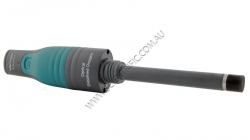
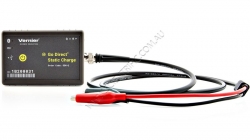
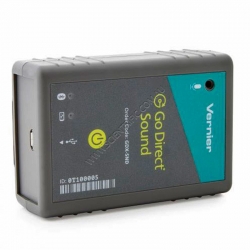

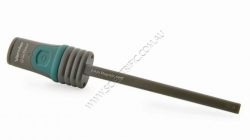
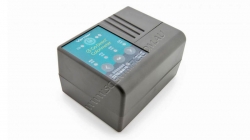
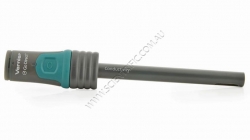
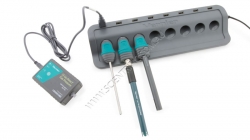
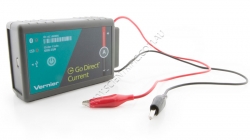
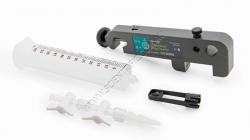
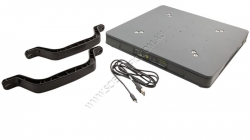
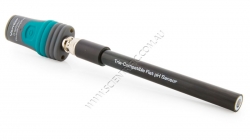
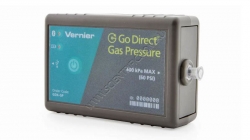
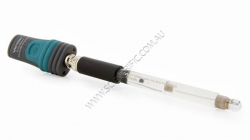
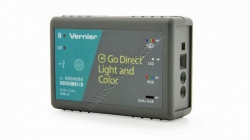
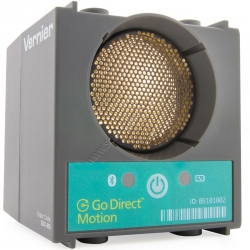
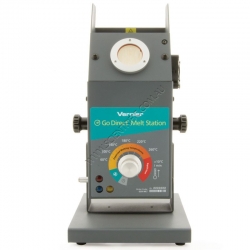

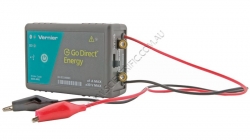
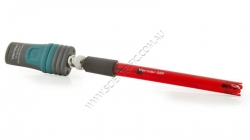
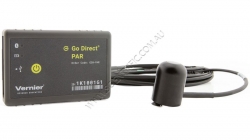
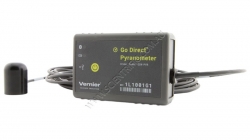
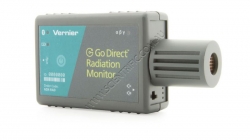


115 low relevance results shown for 'System'. Prev |1|2|3|4|5 | Next | View 100 per page
Showing low relevance matches only. Return to normal search results
Curriculum resources related to 'System'
ACSSU078 Year 5 Earth and Space SciencesEarth Moon Sun - The Earth is part of a system of planets orbiting around a star (the sun) ACSSU150 Year 8 Biological Sciences
Organ Systems - Multi-cellular organisms contain systems of organs that carry out specialised functions that enable them to survive and reproduce ACSSU155 Year 8 Physical Sciences
Energy Forms - Energy appears in different forms, including movement (kinetic energy), heat and potential energy, and energy transformations and transfers cause change within systems ACSSU175 Year 9 Biological Sciences
Organ Systems - Multi-cellular organisms rely on coordinated and interdependent internal systems to respond to changes to their environment ACSSU176 Year 9 Biological Sciences
Ecology - Ecosystems consist of communities of interdependent organisms and abiotic components of the environment; matter and energy flow through these systems ACSSU179 Year 9 Chemical Sciences
Chemical Reactions - Chemical reactions, including combustion and the reactions of acids, are important in both non-living and living systems and involve energy transfer ACSSU188 Year 10 Earth and Space Sciences
Universe - The universe contains features including galaxies, stars and solar systems and the Big Bang theory can be used to explain the origin the universe ACSSU189 Year 10 Earth and Space Sciences
Global Systems - Global systems, including the carbon cycle, rely on interactions involving the biosphere, lithosphere, hydrosphere and atmosphere ACSSU190 Year 10 Physical Sciences
Energy Conservation - Energy conservation in a system can be explained by describing energy transfers and transformations ACSBL019 Year 11 Biodiversity and the interconnectedness of life
Describing biodiversity - Ecosystems are diverse, composed of varied habitats and can be described in terms of their component species, species interactions and the abiotic factors that make up the environment ACSBL029 Year 11 Biodiversity and the interconnectedness of life
Ecosystem dynamics - Models of ecosystem interactions (for example, food webs, successional models) can be used to predict the impact of change and are based on interpretation of and extrapolation from sample data (for example, data derived from ecosystem surveying techniques ACSCH061 Year 11 Molecular interactions and reactions
Aqueous solutions and acidity - Water is a key substance in a range of chemical systems because of its unique properties, including its boiling point, density in solid and liquid phases, surface tension, and ability to act as a solvent ACSCH091 Year 12 Equilibrium acids and redox reactions
Chemical equilibrium systems - Over time, physical changes and reversible chemical reactions reach a state of dynamic equilibrium in a closed system, with the relative concentrations of products and reactants defining the position of equilibrium ACSCH096 Year 12 Equilibrium acids and redox reactions
Chemical equilibrium systems - Equilibrium position can be predicted qualitatively using equilibrium constants ACSCH097 Year 12 Equilibrium acids and redox reactions
Chemical equilibrium systems - Acids are substances that can act as proton (hydrogen ion) donors and can be classified as monoprotic or polyprotic depending on the number of protons donated by each molecule of the acid ACSCH098 Year 12 Equilibrium acids and redox reactions
Chemical equilibrium systems - The strength of acids is explained by the degree of ionisation at equilibrium in aqueous solution, which can be represented with chemical equations and equilibrium constants (Ka) ACSCH099 Year 12 Equilibrium acids and redox reactions
Chemical equilibrium systems - The relationship between acids and bases in equilibrium systems can be explained using the Brønsted Lowry model and represented using chemical equations that illustrate the transfer of hydrogen ions ACSCH100 Year 12 Equilibrium acids and redox reactions
Chemical equilibrium systems - The pH scale is a logarithmic scale and the pH of a solution can be calculated from the concentration of hydrogen ions; Kw can be used to calculate the concentration of hydrogen ions from the concentration of hydroxide ions in a solution ACSCH101 Year 12 Equilibrium acids and redox reactions
Chemical equilibrium systems - Acidbase indicators are weak acids or bases where the acidic form is of a different colour to the basic form ACSCH102 Year 12 Equilibrium acids and redox reactions
Chemical equilibrium systems - Volumetric analysis methods involving acidbase reactions rely on the identification of an equivalence point by measuring the associated change in pH, using chemical indicators or pH meters, to reveal an observable end point ACSPH016 Year 11 Thermal nuclear and electrical physics
Heating processes - Heat transfer occurs between and within systems by conduction, convection and/or radiation ACSPH022 Year 11 Thermal nuclear and electrical physics
Heating processes - Two systems in contact transfer energy between particles so that eventually the systems reach the same temperature; that is, they are in thermal equilibrium ACSPH064 Year 11 Linear Motion and Waves
Linear motion and force - Momentum is a property of moving objects; it is conserved in a closed system and may be transferred from one object to another when a force acts over a time interval ACSPH065 Year 11 Linear Motion and Waves
Linear motion and force - Energy is conserved in isolated systems and is transferred from one object to another when a force is applied over a distance; this causes work to be done and changes to kinetic and/or potential energy of objects ACSPH073 Year 11 Linear Motion and Waves
Waves - A mechanical system resonates when it is driven at one of its natural frequencies of oscillation; energy is transferred efficiently into systems under these conditions ACSBL052 Year 11 Biodiversity and the interconnectedness of life
Ecosystem dynamics - Photosynthesis is a biochemical process that in plant cells occurs in the chloroplast and that uses light energy to organic compounds; the overall process can be represented as a balanced chemical equation ACSBL053 Year 11 Biodiversity and the interconnectedness of life
Ecosystem dynamics - Cellular respiration is a biochemical process that occurs in different locations in the cytosol and mitochondria and metabolises organic compounds, aerobically or anaerobically, to release useable energy in the form of ATP; the overall process can be repr ACSPH021 Year 11 Thermal nuclear and electrical physics
Heating processes - Change of state involves internal energy changes to form or break bonds between atoms or molecules; latent heat is the energy required to be added to or removed from a system to change the state of the system
Products related to 'System'

Vernier Go Direct Optical Dissolved Oxygen Probe
VERNIER GO DIRECT OPTICAL DISSOLVED OXYGEN PORBE
The Vernier Go Direct Optical Dissolved Oxygen Probe combines the power of multiple sensors to make it easy to measure dissolved oxygen concentration, water temperature and atmospheric pressure. It connects wirelessly via B...
Order code: GDX-ODO

Vernier Go Direct Static Charge
VERNIER GO DIRECT STATIC CHARGE
The Vernier Go Direct Static Charge Sensor is completely wireless and provides educators and students with enhanced accuracy in measurements of positive and negative charges. Unlike a traditional electroscope, this sensor offers a means for...
Order code: GDX-Q

Vernier Go Direct Sound Sensor
VERNIER GO DIRECT SOUND SENSOR
The Vernier Go Direct Sound Sensor is used to easily capture and evaluate waveforms. It directly connects via Bluetooth® wireless technology or wired via USB.
Collect sound data wirelessly with the snap of your fingers. With sound-trigger...
Order code: GDX-SND

Vernier Go Direct Weather Sensor
VERNIER GO DIRECT WEATHER SENSOR ONLY
Easily monitor a wide variety of environmental factors with just one sensor.
The wireless handheld Vernier Go Direct Weather Sensor measures:
• Wind Speed
• Wind Chill
• Temperature
• Heat Index
• Dew Point
• Relative Humidity
...
Order code: GDX-WTHR

Vernier Go Direct 3-Axis Magnetic Field Sensor
VERNIER GO DIRECT 3-AXIS MAGNETIC FIELD SENSOR
Vernier's Go Direct™ 3-Axis Magnetic Field Sensor measures the components of the magnetic field along three orthogonal axes. This allows you to determine the magnitude and direction of the magnetic field at any point in space...
Order code: GDX-3MG

Vernier Go Direct Colorimeter
VERNIER GO DIRECT COLORIMETER
Vernier's 4-wavelength Go Direct Colorimeter measures absorbance or transmittance of a liquid sample. It directly connects wirelessly via Bluetooth® or wired via USB to your platform.
Use this sensor to explore absorbance and percent trans...
Order code: GDX-COL

Vernier Go Direct Conductivity Probe
VERNIER GO DIRECT CONDUCTIVITY PROBE
Vernier's Go Direct Conductivity Probe determines the ionic content of an aqueous solution by measuring its electrical conductivity. It directly connects wirelessly via Bluetooth® or wired via USB to your platform.
The Vernier Go Di...
Order code: GDX-CON

Vernier Go Direct Charging Station
VERNIER GO DIRECT CHARGING STATION
The Vernier Go Direct™ Charging Station is the perfect solution for charging your Go Direct Sensors. Each charging station has sixteen charging ports - eight USB and eight wand-style sensor ports. LED lights on the Go Direct sensors wil...
Order code: GDX-CRG

Vernier Go Direct Current Probe
VERNIER GO DIRECT CURRENT PROBE
Simplify your experimental setup by using the Vernier Go Direct Current Probe to measure electric currents in circuits. It connects wirelessly via Bluetooth® or wired via USB to your device. The wireless connection eliminates additional cab...
Order code: GDX-CUR

Vernier Go Direct Drop Counter
VERNIER GO DIRECT DROP COUNTER
Vernier's Go Direct Drop Counter precisely records the number of drops of titrant added during a titration and then automatically converts it to volume. It directly connects wirelessly via Bluetooth® or wired via USB to your platform.
Con...
Order code: GDX-DC

Vernier Go Direct Force Plate
VERNIER GO DIRECT FORCE PLATE
Designed for much greater forces than the Dual-Range Force or Go Direct Force and Acceleration sensors, the Vernier Go Direct Force Plate can measure the forces developed during stepping, jumping and other human-scale actions.
For example...
Order code: GDX-FP

Vernier Go Direct Tris Compatible Flat pH Sensor
VERNIER GO DIRECT TRIS-COMPATIBLE FLAT pH SENSOR
Vernier's Go Direct Tris-Compatible Flat pH Sensor is a highly versatile sensor. Because the glass membrane is flat instead of a bulb, it is more durable, easier to clean and allows for flat surface measurements or smaller ...
Order code: GDX-FPH

Vernier Go Direct Gas Pressure Sensor
VERNIER GO DIRECT GAS PRESSURE SENSOR
Vernier's Go Direct Gas Pressure Sensor measures the absolute pressure of a gas. It directly connects wirelessly via Bluetooth® or wired via USB to your platform.
Use the Vernier Go Direct Gas Pressure Sensor to monitor gas pressur...
Order code: GDX-GP

Vernier Go Direct Glass-Body pH Sensor
VERNIER GO DIRECT GLASS BODY pH SENSOR
This high-quality glass body pH sensor can be used in non-aqueous solutions and solutions that contain organic solvents, strong acids or strong bases. The electrode features a sealed, gel-filled Ag-AgCl combination reference electrod...
Order code: GDX-GPH

Vernier Go Direct Light and Colour Sensor
VERNIER GO DIRECT LIGHT AND COLOUR SENSOR:
Vernier's Go Direct Light and Colour Sensor is a powerful and versatile light sensor that measures light in the visible to ultraviolet electromagnetic spectrum. An RGB colour sensor detects relative contributions of primary colou...
Order code: GDX-LC

Vernier Go Direct Motion Detector
VERNIER GO DIRECT MOTION DETECTOR
Vernier's Go Direct Motion Detector uses ultrasound to measure the position, velocity and acceleration of moving objects. It directly connects wirelessly via Bluetooth® or wired via USB to your platform.
Accurately track objects as clo...
Order code: GDX-MD

Vernier Go Direct Melt Station
VERNIER GO DIRECT MELT STATION
Vernier's Go Direct Melt Station accurately determines the melting temperature of solid substances. It directly connects wirelessly via Bluetooth® or wired via USB to your platform.
Teach students the visual detection capillary method of ...
Order code: GDX-MLT

Vernier Go Direct Sensor Bracket
VERNIER GO DIRECT SENSOR BRACKET
Vernier's Go Direct sensor bracket fits most of Vernier's box-shaped Go Direct® sensors. Attach the bracket to Vernier's accessory rod or any tripod with a standard camera mount to hold a sensor still and stable for repetitive measurements...
Order code: GDX-MOUNT

Vernier Go Direct Energy Sensor
VERNIER GO DIRECT ENERGY SENSOR
The Vernier Go Direct Energy Sensor quantifies the voltage, current, power and energy output of small wind turbines and solar panels like those used in our KidWind Experiment Kits. It connects wirelessly via Bluetooth® wireless technology o...
Order code: GDX-NRG

Vernier Go Direct ORP Sensor
VERNIER GO DIRECT ORP SENSOR
Vernier's Go Direct ORP (Oxidation-Reduction Potential) Sensor measures the ability of a solution to act as an oxidizing or reducing agent. It directly connects wirelessly via Bluetooth® or wired via USB to your platform.
Use the Vernier Go...
Order code: GDX-ORP

Vernier Go Direct PAR Sensor
VERNIER GO DIRECT PAR SENSOR
The Vernier Go Direct PAR (Photosynthetically Active Radiation) Sensor measures photosynthetic light levels in both air and water. The sensor reports the Photosynthetic Photon Flux Density (PPFD), which corresponds to micromoles of photons per...
Order code: GDX-PAR

Vernier Go Direct Pyranometer
VERNIER GO DIRECT PYRANOMETER
Vernier's Go Direct Pyranometer measures the power of electromagnetic radiation in watts per square meter and is great for experiments with solar cells and calculating their efficiency.
It is sensitive to near infrared, visible and UV rad...
Order code: GDX-PYR

Vernier Go Direct Radiation Monitor - Geiger Counter
VERNIER GO DIRECT RADIATION MONITOR
Vernier's Go Direct Radiation Monitor detects alpha, beta, gamma and X-ray radiation and can be used to explore radiation statistics, measure the rate of nuclear decay and monitor radon progeny.
This easy-to-use sensor consists of a...
Order code: GDX-RAD

Vernier Go Direct Rotary Motion Sensor With Kit
VERNIER GO DIRECT ROTARY MOTION SENSOR WITH ACCESSORIES KIT
Purchase Vernier's GDX-RMS Go Direct Rotary Motion Sensor and AK-RMV Rotational Motion Accessory Kit together in this package.
Monitor angular motion easily and precisely with Vernier's Go Direct Rotary Motion...
Order code: GDX-RMPK

Vernier Go Direct Rotary Motion Sensor
VERNIER GO DIRECT ROTARY MOTION SENSOR
Monitor angular motion easily and precisely with Vernier's Go Direct Rotary Motion Sensor which connects wirelessly via Bluetooth® or wired via USB to your device. The wireless connection eliminates the cables that can get caught and...
Order code: GDX-RMS
115 low relevance results shown for 'System'. Prev |1|2|3|4|5 | Next | View 100 per page



 ,
,